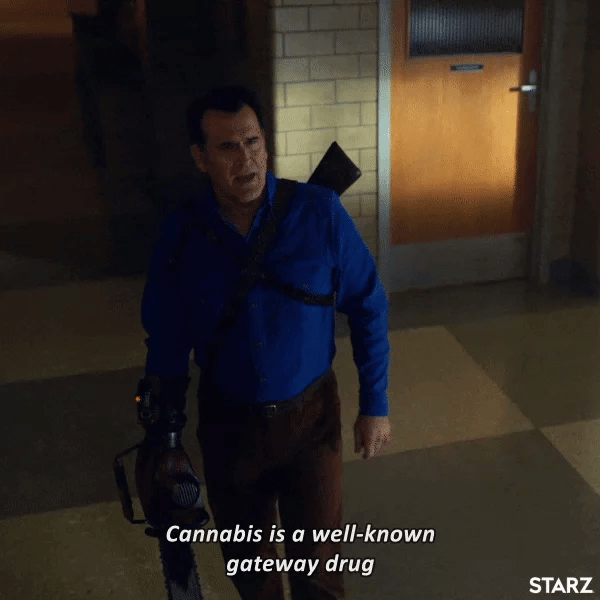
News Highlights 📸:
Alaska's ☃️ Crime Reduction: Since legalizing recreational marijuana 🥒 in 201️⃣4️⃣, Alaska ❄️ has seen a 3% decrease in overall crime rates and a 4% reduction in violent crime. Marijuana-related arrests also dropped by 93%, reflecting a shift in law enforcement 👮♂️ focus. The Marijuana Herald
Washington State's Experience: While Washington saw a significant drop ⤵️ in marijuana-related arrests 👮 after legalization, there was an initial short-term spike in property 🏢 crimes such as burglary and larceny. These increases, however, did not persist in the long term. Evidence Based Society
Nationwide 🌄 Trends: Data from the FBI's Uniform 🪖 Crime Reports suggests that states with legalized recreational marijuana 🟩 have generally seen a reduction in marijuana-related arrests, freeing up resources for other crimes. NORML

Quick Read 📋:
Reduction 🔽 in Drug-Related Arrests: Legalization reduces arrests 🚓 for cannabis possession, allowing law enforcement to focus 👀on more severe criminal activities.
Debunking the Gateway Drug Myth 🪼: Contrary to prior beliefs, legalization has not triggered a surge in harder drug usage or violent crime 🏹 escalation.
Undermining Organized Crime 🪓: Legal cannabis markets weaken the grip of illicit trade networks and drug cartels ⚔️, though black 🏴 markets still persist.
Minimal Effect on Violent 🗡️ Crime: Studies indicate that cannabis legalization has not significantly increased violent 🔪 crimes, with some data suggesting a reduction in aggressive 🤨 behavior.
Cautious 🦺 Optimism for the Future: Though long-term effects remain under study 📚, the initial outcomes suggest marijuana 🍀 reform could foster positive societal changes.

The Impact 💣 of Marijuana Legalization on Crime Rates: Does It Increase or Reduce Crime?
Marijuana legalization 🌿 has been a contentious issue across various jurisdictions, with vocal arguments 🗣️ from both proponents and critics. One of the most hotly debated topics is whether legalizing cannabis has a discernible effect on crime rates 🚔. While some fear a potential uptick 👆 in criminal activity, emerging evidence suggests that legal marijuana may, in fact, have a neutral or even positive ➕ impact on public safety 🔐.
Illegal trafficking activity is being displaced by a closely regulated marijuana industry... freeing up significant law enforcement resources to protect our communities in other, more pressing ways.”
One of the most immediate effects of marijuana legalization is the dramatic reduction in arrests 🚨 for possession and distribution. Decriminalizing cannabis means fewer individuals are ensnared in the criminal justice system for minor offenses 🧑⚖️. This shift allows law enforcement resources to be redirected 🔜 toward more severe crimes like violence, theft 💵, and trafficking 🚐. In states like Colorado and Washington, where recreational marijuana has been legal since 2012, research indicates a significant drop in drug-related arrests 📉.

The “Gateway 💉 Drug” Myth Debunked?
For years, cannabis 🌻 has been framed as a "gateway drug" 🛤️—a stepping stone to harder substances like cocaine or heroin. This narrative has fueled fears that legalization would spark a surge in drug abuse and related crimes 🚪. However, current data 📀 suggests the opposite: legalization has not led to spikes in the use of harder substances, and there’s no strong correlation between cannabis consumption and the commission of violent crimes 🔬.
Organized Crime 🚁 and the Black Market 🕷️
One of the often-touted benefits of marijuana 🐉 legalization is its potential to weaken organized crime 💼. Legal markets provide a regulated, safer alternative to the illegal trade of marijuana, undercutting the profitability of drug cartels. In countries like Uruguay 🇺🇾 and Canada 🇨🇦, the dismantling of illegal cannabis operations has contributed to a weakening of organized crime syndicates 👨👨👦👦. That said, the black 🌑 market has not been eradicated ☠️ completely, as high taxes and regulatory costs in legal markets sometimes drive consumers back to cheaper, illicit alternatives 🎄.

Impact on Violent ⛔ Crime
A key 🗝️ concern among opponents of marijuana legalization is the potential increase in violent crime. However, studies conducted in legalized states have generally not found a significant increase in violent crime. Some research 📗 even suggests that the availability of legal cannabis may reduce violence linked to drug trafficking operations, as the incentive for violent competition between illegal dealers diminishes ⚖️. Moreover, the tranquilizing 💤 effects of cannabis could lead to a reduction in impulsive, aggressive behaviors 🧘♀️, though this remains an area of ongoing research.
The Road Ahead
While the data on marijuana 🫑 legalization 📒 and crime rates remains a work in progress, current trends seem cautiously optimistic 📈. The social and legal changes brought about by legalization may offer a blueprint 🔵 for future 🛸 reforms, with many analysts urging a rethinking of outdated punitive approaches to drug use 🚀. But, the long-term impacts of marijuana policy changes still require rigorous study before any definitive conclusions can be drawn 🎯.
With such mixed 🤬🥰 findings, do you believe that further marijuana 🥦 legalization will contribute to a safer society or will it open doors to unforeseen 🤜🤛 challenges?
🫶 Love Unconditionally 💗

The information provided in this newsletter is for informational purposes only and does not constitute medical, legal, or professional advice. Always consult with a qualified professional before making any decisions based on the content shared here.
